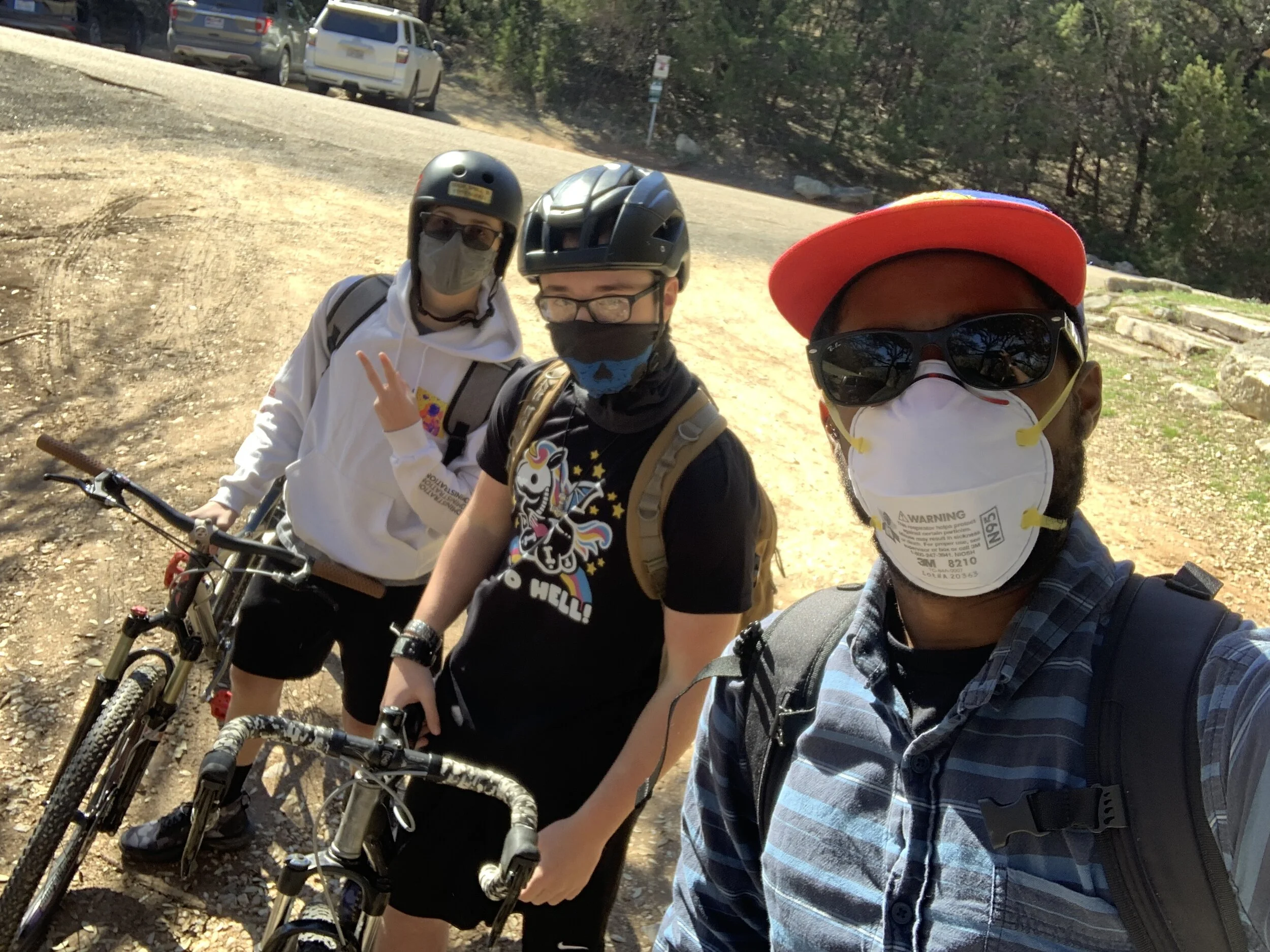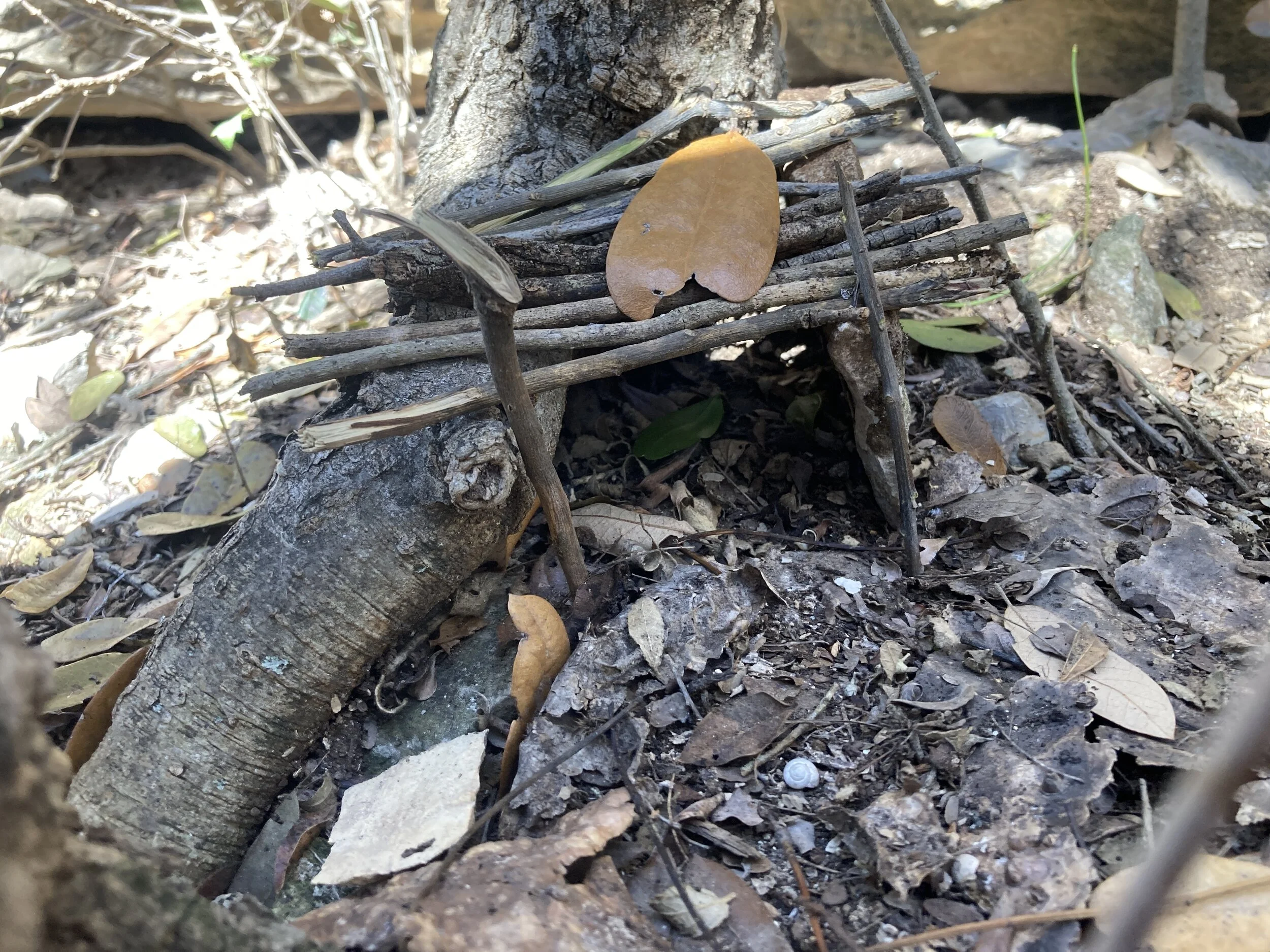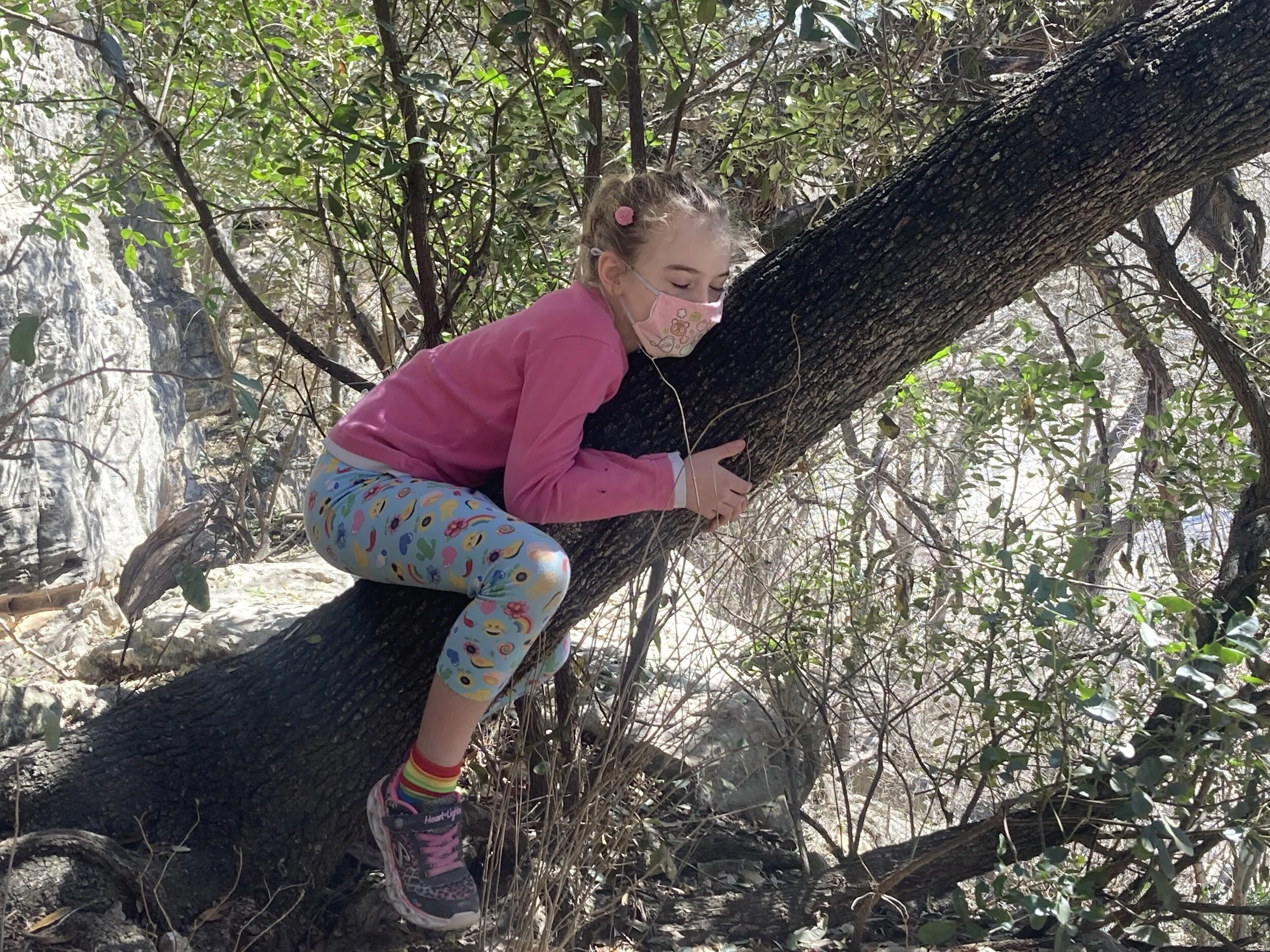I woke up for day 97 with my hand swollen and in plenty of pain. It seems that perhaps when I fell filming an update video on Monday morning that maybe I broke or sprained something in my hand or wrist. But I already had an appointment that morning and time was short, so I figured I would deal with it later in the day. I packed up everything I needed for the day and did some writing but the morning sped by way too quickly. I arrived at the cell just in time for the morning meeting which I was facilitating that morning.
I planned on a longer meeting than usual. The first prompt for that meeting was, “what makes you feel uncomfortable or unwelcome when meeting new people?” Each came up with something that puts people more at ease or initiates a conversation. The second prompt was, “society picks and chooses when to treat adolescents as adults or children. What are examples of each and is it fair?” I was pleased to see that most of the Learners said they felt treated as an adult at home where their guardians treated them with respect, trusted them, and respected their autonomy. Only one Learner was miffed that their guardians treated them as adults. Where they are treated as children was much more diverse. One response was of a time a Learner went back to her old school with her mom (in a different city) and the teachers kept asking questions about her, but to her mom. Another response was “where it is children-oriented (e.g., children’s museums).” And another response was whenever he walks around his neighborhood, and adults focus in on him as though he should not be alone. And he’s 14-years-old!
Unfortunately the morning meeting ran so long I missed the 10:30 a.m. morning check-in for the remote Learners. I went on a quick hike up to a pretty lookout spot at the top of a small but steep hill and then jumped on Discord and apologized to the remote Learners for missing the morning check-in, made myself available to them, and asked if there was a better time to meet given that future morning meetings could potentially run long, as well. Then I filmed a quick daily check-in to post on Instagram, which was pretty impromptu yesterday but I guess is going to be my thing for this cycle. The weather was beautiful and I could have stayed up there all day, but most of the Learners chose not to walk up the hill with me that morning, so I headed back toward the lake, and refilled my water along the way.
When I got back to the lake there was lots of buzzing around by the Learners. One Learner had asked to speak to both me and Facilitator Ariel at some point about something serious, and Facilitator Ariel had planned to host a Flying Squad planning meeting at some point. I decided that I would like to eat lunch, then have the meeting with the Learner, and then we could have the Flying Squad planning meeting later in the afternoon, and I asked if that would work for the Learners and Facilitator Ariel. Everyone agreed and I settled in on my lunch. While I was eating my lunch a Learner was delaying his own. Instead, the Learner had harvested a bunch pecan nuts and brought them out to the dock to break them open and eat them.
After lunch the Learner, Facilitator Ariel, and I walked out to the middle of a large field and sat down in a circle to have the meeting that was called by the Learner. It started out with some concerns she was having related to family life. We listened to her perspective, and then I asked her how she wanted us to support her: listening, brainstorming, advice, etc. She said she wanted advice, so we began to work through a better understanding of her circumstances, the possible explanations for what different people’s motivations and intentions were, and a wide variety of possibilities that were available to her. It turned out that the initial concern was only a tiny piece of the bigger picture, and had we jumped in with feedback right away we would have never been able to work through that. Then the conversation shifted to relationship issues and we went down a similar path. The conversation lasted well over an hour.
Hanging with the Abromies
After the meeting, Facilitator Ariel and two Learners headed out on a bike ride. They roamed a bit, and then the chose to test some of the limits of their biking skills. They went for a mixture of speed, jumps, and vertical drops. It was fun watching them challenging themselves and taking risks, but also choosing to avoid unnecessary risks that were clearly well beyond their capabilities. One of the many benefits of a psychologically safe space where they are free from assessment, judgment, and ridicule is that Learners do not feel a need to perform for others. The crew also came up with a new name for a group of Abrome Learners and Facilitators—Abromies.
A home for the roly-polies
The other cell, composed entirely of young Learners, was having a blast ten miles away. Their day started out great with full participation in the morning meeting. The much nicer weather allowed them to be more comfortable staying in place and soaking up the sun, while also making moving around and exploring more enjoyable. One of the Learners got really into the roly-polies that were rummaging around in the dirt. Growing up we called them pillbugs. Little did I know that they have a whole slew of nicknames to include woodlice and wood shrimp. I’m glad I grew up knowing them as pillbugs because I think I would have been less likely to play with woodlice or wood shrimp. They are also called doodlebugs, cheesybugs, chiggypigs, and penny sows. On this day, the young Learner chose to make a fort for the roly-polies.
Tree hugger approved
The younger Learners also covered a good amount of ground on Tuesday. Around midday they decided to go on a hike to a place they call the cave. On their journey they were able to scale an impressive stair system made out of tree roots. When they arrived at the cave they were able to break out the solo stove and enjoy a small fire. One of the Learners also decided to take a nap on a tree.
Back at the cell that I was in, Facilitator Ariel was hosting his Flying Squad meeting to plan for a Flying Squad day next Wednesday. After being remote for the last two cycles, and having not gone on a formal Flying Squad day all year because of the pandemic, we wanted to have a Flying Squad day as a prelude to the Flying Squad cell that is planned for the next cycle. Abrome is a part of both the Flying Squads and Agile Learning Centers networks, both of which firmly believe in Self-Directed Education and child autonomy. I can explain why at a later date, but I will say that being part of each network has uniquely prepared us to safely navigate this pandacademic year. In the case of Flying Squads, we support young people in their right to be in public spaces, using the city and land as their rightful space and place as much as anyone else, and advocating for that in the face of those who may challenge them. Most of our pre-pandemic Learners participated in at least one of our Flying Squads (one was play-based and typically filled with younger Learners, and one was social-justice oriented and more typically filled with older Learners) and easily accepted that the best way we could be more safely be together was to go outdoors all day in small groups, knowing that they were capable of doing so even in less than ideal conditions. So while we had not had a single formal Flying Squad day into the city yet this pandacademic year, we have essentially been doing Flying Squads every day in nature. And next Wednesday they will venture into the city.
After the meeting I chose to read a more interesting than expected book on homeschooling during the pandemic, while Facilitator Ariel pulled a light saber out of his back pack. I had seen another Learner with his own light saber, but I did not realize that they had planned a light saber duel. Fortunately, these light sabers seem to only cause temporary death, although each of them experienced very painful light saber deaths at the hands of the other.
As the day was winding down one of the adolescent Learner’s said that he had taught another one how to tie their shoes. This took me by surprise, as I was pretty certain that all the Learners knew how to tie their shoes. The Learner amended the statement saying that he taught him how to fast tie his shoes, and then showed me what that meant. I was impressed—I could have saved hours of my life if I had been fast tying my shoes all these years. The Learner then decided to teach the Facilitators, and then other Learners jumped in offering to teach as well. Sadly, a pair of AirPods fell out of a pocket and into the lake during the lesson, teaching us all a very different and unexpected lesson when near water. We finished the day with the afternoon roundup with each of us sharing one thing we are grateful for, one thing we are going to do to make the most of tomorrow, and one thing we are going to leave behind. It helped us shift from the awkwardness and frustration of a lost pair of AirPods to focus on how fortunate we are, and what we can still control.








